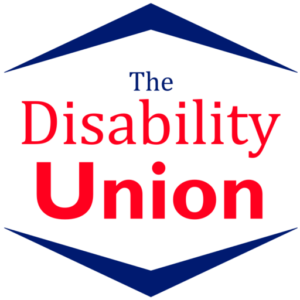
There are lots of stereotypes and misconceptions surrounding people with disabilities. We’ve talked a bit about the process of hiring people with disabilities, and some benefits of hiring them as well as how to make the process accessible. But we haven’t gotten into the misconceptions that employers have when hiring people with disabilities. Many employers believe certain myths about hiring someone with a disability, but they are usually not true and stem from old, outdated information. In this article, we will discuss some of the most common misconceptions, and why they are not true. (Note: These myths and misconceptions are mainly focussed on physical disabilities.)
People with Disabilities Miss More Work Because of Their Disability
Okay, let’s start off with what I think is the silliest. First of all, not every disability is the same. For example, a person who is deaf isn’t going to miss more work just because they are deaf. Just as a blind person isn’t going to have a day where they are too blind to come into work.
With disabilities, like mine, that may cause the individual to unexpectedly get ill and need time off, we try and save our sick days for when we really need them. Additionally, people with disabilities are used to their disability, so they know what might set off certain symptoms and can plan accordingly. For example, if someone with a breathing disorder knows certain perfumes set off certain symptoms, they’re usually experts at avoiding such hazards.
People with Disabilities Require Expensive Accommodations
We’ve already got our mobility device of choice, such as our hearing aides, etc. And most of the time, we don’t require anything. There are also grants that businesses can sometimes apply for to help fund the more expensive things, like special computer software.
Working from home, I already had all the equipment I needed (special keyboard/mouse, desk tray). I didn’t require anything special. Even if I did, the total would have come out to less than $100 USD. It’s also worth noting that oftentimes non-disabled people will request things such as chairs with lumbar-support, and those can be expensive.
People With Disabilities Don’t Want/Need to Work Because of Government Assistance
This one drives me up a wall. I want to work. Most people I know with a disability want to. That’s why this entire company exists, to get people with disabilities into the workforce. It fills our human desire to be productive. However, the way certain government assistance programs are set up (at least in the US) it makes it hard to work because if we make too much money, we can lose the resources we need to survive.
People with Disabilities Aren’t Able to do [Job Requirement]
Sure, things like lifting and reaching? I’ll grant you that. However, in my experience, these sorts of requirements are more common in retail-type jobs. But I can make a great powerpoint, and write an effective email. People with disabilities might surprise you with what they’re capable of. We often have tricks up our sleeves for doing things differently. After all, we’re living in a world that wasn’t made for us, so we’ve adapted. Don’t count someone out just by making a snap judgement because you might be surprised with what they can do.
People with Disabilities Are Only Suited for Certain Jobs/Industries
I genuinely don’t know where this idea comes from. It’s the same as saying “all tall people are only suited for basketball”. If you read our interviews from April (here’s the first one) you’ll remember that each person had very different jobs, and only one directly related back to their disability. Sure, their disability may have influenced their passions and ideas of what career they eventually pursued, but no more so than someone who went to space camp every summer would want to pursue a career with NASA. This is something that I could talk about forever, but I’ll leave it at that.
People With Disabilities Require Too Much Training When Hired
We wouldn’t apply for a job we’re not qualified for, any more than an able-bodied person would. We know what we’re good at, we know what we can do. There might be a learning curve as we figure out our alternate way to get done what we need to do, but that’s usually it. It can be frustrating waiting for your new employee to get the hang of things, but that’s true for any employee. Sometimes someone will pick things up right away, sometimes it might take a bit. This is true regardless of ability.
Conclusion
Hopefully, these myths have been dispelled. Hiring someone with a disability can be intimidating and scary, especially if you have little or no experience doing so. People with disabilities are just that–people. We want what everyone else wants, even if it means we go about it a little differently.


